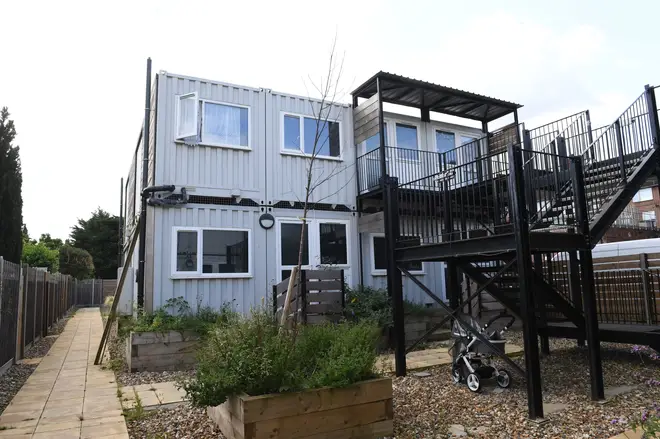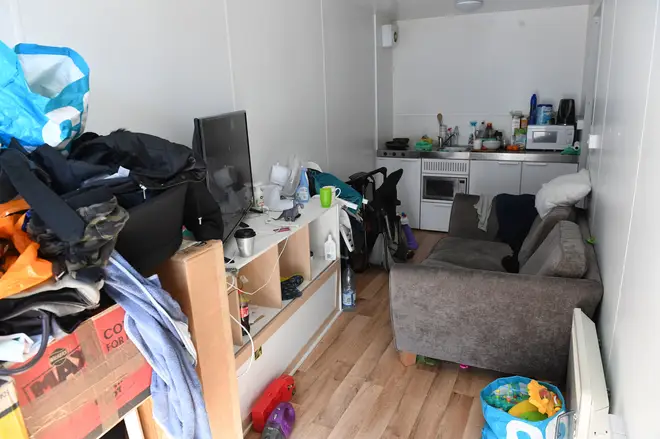
Iain Dale 10am - 1pm
21 August 2019, 11:07

The Children's Commissioner for England has condemned the 'scandal' of child homelessness in the Britain.
Homeless children are being temporarily housed in converted shipping containers, according to a report from the Children's Commissioner for England.
It is estimated that more than 210, 000 children in the UK are homeless. 124, 000 of these children are "officially homeless", with a further 90, 000 "sofa-surfing".
Councils have blamed the £159 million funding gap for the epidemic.
The report has confirmed that families crammed into tiny living spaces, including repurposed shipping containers and office blocks.
The Bleak Houses report, commissioned by Children's Commissioner Anne Longfield, found the shipping containers to be cramped and exposing children to inhospitable temperatures.
Although the report does not say where these shipping containers are being used, there are reports of them being set up in Bristol, Cardiff and west London
A spokesman for the Department for Communities and Local Government said anyone who feels they have been placed in unsuitable accommodation should request a review.
It’s a scandal that in 2019 thousands of children are being forced to grow up in old office blocks and shipping containers. This dangerous temporary accommodation must be outlawed and new social homes built. https://t.co/Aq1weQnuId
— Anne Longfield (@annelongfield) August 21, 2019
The Children's Commissioner called the situation a "scandal" on her Twitter, and said that "this dangerous temporary accommodation must be outlawed and new social homes built".
After visiting children affected by homelessness, she said that it was "sad and surprising" to learn of the extremes that councils were having to go to in order to deal with the problem.
She said "office block conversions, in which whole families live in single rooms barely bigger than a parking space, and shipping containers which are blisteringly hot in summer and freezing in the winter months," are not acceptable shelter for children.
The shipping containers are often located on "meanwhile" sites while they wait for further development.
Children are also being housed in office blocks and warehouses, with entire families living in 18 square metre rooms.
In some containers and office blocks, whole families sleep in a single room that is also used as a kitchen.
Problems with anti-social behaviour in the areas surrounding these shipping containers mean that many children are kept inside the cramped units instead of playing outside.
Ms Longfield also commented that families who are placed in B&Bs as temporary accommodation are also at risk.
She called the facilities "intimidating and potentially unsafe environments" as children share bathrooms with other residents, including adults with mental health and drug abuse problems.

The report found that two in five children in temporary accommodation had been there for at least six months. One in 20 had been there for over a year.
The report warns that a further 375,000 children in England are in households that have fallen behind on rent or mortgage payments.This means thousands more are at financial risk of becoming homeless in the future.
The Department for Communities and Local Government said the government had invested £1.2 billion to tackle all types of homelessness and that this has reduced the number of children living in B&B accommodation.